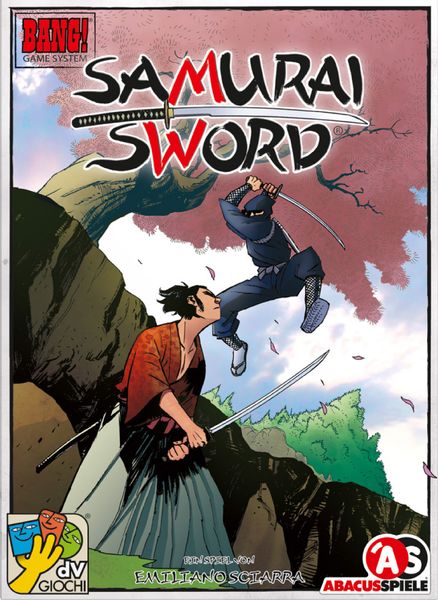Samurai Sword (2012) Board Game
Samurai Sword is a card game designed by Emiliano Sciarra and released in in 2012. It is a reimplementation of the popular Bang! card game, set in a Samurai theme. The game has been well-received for its unique blend of bluffing, deduction, and hand management mechanics.
Game Components of Samurai Sword
How To Setup Samurai Sword
Each player is given a character card with a special power and a hidden role. The roles include Shogun, Samurai, Ninja, and Ronin. The Shogun’s role is revealed, while others keep their roles secret. Players also receive resilience points (health) and initial honor points. The objective is to earn the most Honor Points through the game.
Gameplay Mechanics and Game Objective
Player Experience
Samurai Sword is praised for its improved gameplay over Bang!, offering faster and more enjoyable sessions. However, it has its criticisms, such as the lack of mechanics to support role discovery and the simplicity of the card system, which some find less immersive. The game’s theming is fun and thematic, with Asian weapons and cultural elements adding to the atmosphere.
Pros
Cons
Personal Thoughts on Samurai Sword
Samurai Sword is ideal for those who enjoy social deduction games with a hint of strategy and combat. It’s a good alternative to Bang!, addressing some of the original’s issues but also introducing new challenges. The game is best suited for groups of 3-7 players looking for a fun, thematic experience with a touch of intrigue and deduction. However, it may not be the best fit for those seeking complex, long-term strategies or those who prefer games with more detailed and varied card systems.
We are supported by our audience. When you purchase through links on our site, we may earn an affiliate commission, at no extra cost for you. Learn more.

